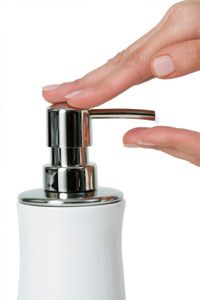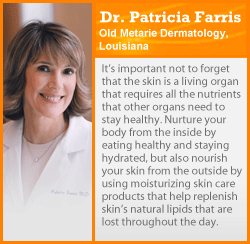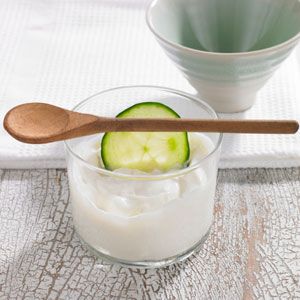There's nothing like the rejuvenating feeling of a freshly washed face -- that is, unless your cleanser is leaving you high and dry. If your hands are red and scaly from the regular hand-washing meant to keep nasty cold and flu bugs at bay, victory over germs isn't so sweet. Then there's that all-over itchy feeling that your body soap leaves behind when you get out of the shower -- it's sure to put a damper on your morning. If your soap is drying out your skin, it's time to throw in the towel and switch to a moisturizing cleanser.
There's no doubt that healthy skin is clean skin. But while washing with soap keeps pore-clogging dirt, dead skin and oil away, it also depletes the skin of its natural moisture. This can damage the stratum corneum, or uppermost layer of skin. Without enough moisture, skin becomes flaky, irritated and less flexible. One of the skin's most important functions is to act as a barrier against water loss, so if the stratum corneum is damaged, it is less able to do its job.
Advertisement
It is helpful to use a moisturizer after you wash, but what will benefit your skin even more is a cleanser that moisturizes while you wash. Many cleansers contain ingredients that help protect the skin's water barrier by retaining water in the skin's outer layer. Some even contain lipids, which are fats and waxes that occur in the body and help keep the skin moist. In cosmetic products, skin lipids are often labeled as sustained-release ceramides.
Many moisturizing cleansers also use emollients and humectants. Emollients are softeners that leave a thin layer of oil on the surface of the skin. That layer of oil helps do what a damaged stratum corneum cannot do as effectively -- hold in water. Humectants, including glycerine or alpha hydroxy acids, add moisture to the skin.
You can do your skin a favor by tossing aside that old bar of deodorant soap and choosing a cleanser that moisturizes. By using a moisturizing cleanser, you can avoid damaging your skin -- and what's more, you can protect it and replenish it. To learn more about the benefits of a moisturizing cleanser, take a look at the links on the next page.
Advertisement


